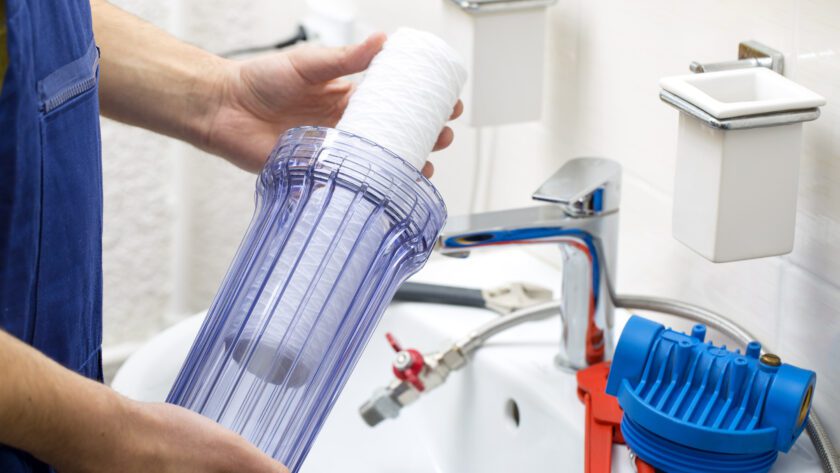If you’re looking for a water filtration system that can provide you with clean and fresh drinking water, reverse osmosis water filtration might be for you. It is one of the most popular and economical water filtration methods available nowadays.
So how does it work? Reverse osmosis water filtration works by filtering water through a semipermeable membrane and leaving the contaminants from the water behind. Using this filter can save you from buying bottled water for drinking purposes. Also, with this filter, you can ensure that the water you are drinking is safe. That is why they are quite popular.
If you’re still second-guessing reverse osmosis water filtration, here are some of its key benefits that may persuade you:
- It’s Effective In Filtration
Reverse osmosis water filtration removes almost all contaminants in the water. Its filtration efficiency can go as much as 98%. It is proven to be a more practical alternative to the charcoal filter. Some of the inorganic compounds that are filtered by reverse osmosis are:
- calcium
- sodium
- sulfate
- phosphate
- arsenic
- lead
- mercury
- chloride
- fluoride
- cyanide
- ammonia
Aside from these compounds, reverse osmosis can also filter out sediments, pesticides, other organic materials unsuitable for human consumption, and even parasites and microorganisms.
- It’s Energy Efficient
Despite the high capacity of reverse osmosis to filter water, you might be surprised that it doesn’t require electricity to operate. No heating or phase changes are needed for it to work, meaning the energy required is around 3 kWh/m^3. Unlike energy-draining appliances such as dishwashers and washing machines, which both use hot water and electricity, the reverse osmosis system is 25% more efficient as there is no wasted energy used in them. That is why bigger filtration industries prefer reverse osmosis systems to desalinate seawater.
- It’s Safer For Consumption
As mentioned, reverse osmosis water filtration can filter out almost all contaminants. This filter can be suitable for people who have weakened immune systems as they can ensure that what they drink is safe for their medical condition.
Some molecules may be harmful to the body if consumed for a long time. Even if you have a healthy body, contaminants from unfiltered water can result in multiple organ failures, cause cancer, and affect the reproductive system.
Lead and mercury are metals that are more commonly known to contaminate water through corrosion of piping lines. Exposure to these metals can deteriorate human health with continuous consumption. People who consume unfiltered water can acquire health issues like fertility problems, nerve and muscle damage, and developmental issues. With reverse osmosis water filtration, you can avoid all of these risks. It also filters out the mineral sodium, which can cause blood pressure spikes.
- It Saves You Money
Another vital benefit of reverse osmosis is that it can significantly reduce your living expenses because you don’t have to purchase bottled water. You might be surprised by how simple it is to filter the water supply in your home without sacrificing its purity. Of course, the costs still depend on how much water you use. But if you’re mindful of your water consumption, you can be in good hands with reverse osmosis water filtration.
- It’s Easier To Maintain
All water filtration systems need to be maintained if you want them to last long. Proper maintenance can also ensure you have constant fresh and high-quality drinking water. Though you might think maintaining a water filtration system can be tedious and a hassle, reverse osmosis water filtration is actually easier to maintain than other systems.
As a rule of thumb, there are only three things you must remember if you want your reverse osmosis water filtration system to last:
- Changing the filters: Replacing the reverse osmosis’ semipermeable membrane and filters should be your priority if you want to increase its lifespan. Usually, these filters and membranes can get clogged and filthy over time. Luckily, you don’t need to worry about replacing the filters until it reaches about 6 to 12 months and the membranes for 24 months.
- Replacing the parts: Some parts of your reverse osmosis system, such as the faucet and the storage tank, can decline over time. Consult your manual or ask for help to troubleshoot whether you need to replace the parts of your RO system.
- Sanitizing the RO system: You should regularly sanitize the reverse osmosis water filtration system. It would be best to hire a trusted water treatment professional to do this.
Final Thoughts
Investing in a reverse osmosis water filtration system can be worth your money as they can effectively remove contaminants from your water. Aside from that, it can save you from buying bottled water every time. You can save money while saving the planet from single-use plastics. It also requires minimal maintenance per year so that you won’t be burdened with high financial costs. Also, you will need to hire professionals that can ensure you the proper keeping up that your reverse osmosis water filtration needs.




